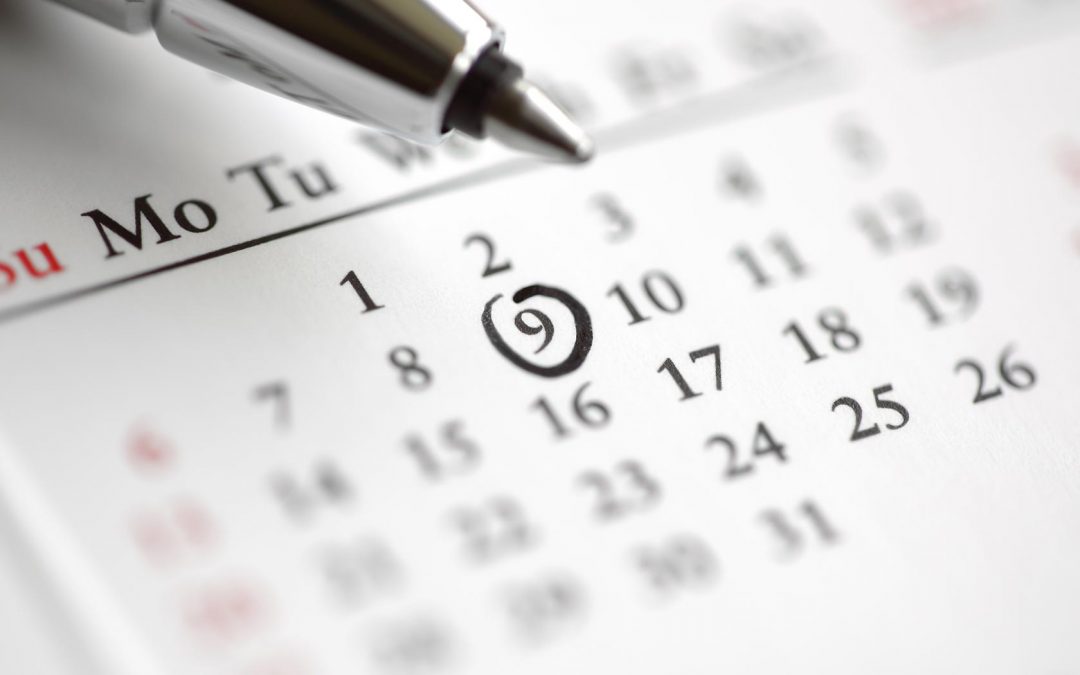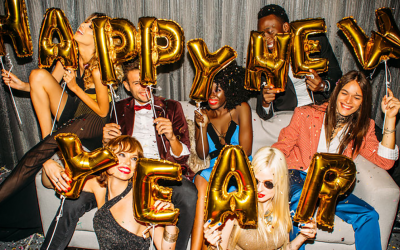Philadelphia Event Planning Guide
Planning and booking a private event can be stressful. One of the hardest part of being selecting a venue, but it doesn’t have to be. If you know what you’re looking for and start early the selection process can be much easier.
First Things First.
Before looking for a venue there are 3 things you need to decide. These are budget, estimated event size, and space requirements.
Budget
How much money are you willing to spend. This will help you not only in selecting a venue but also in bargaining with a business.
Estimated Event Size
How many people are you expecting? A 20 person private dinner is very different than a 500 person corporate retreat. The more people in your event the more complex it can become.
Space Requirements
Do you need special A/V equipment, wifi, handicap accessible entrances? There are many great venues in Philadelphia each offering unique amenities. Figure out what your essential amenities are and your list of venues to select from can be shorter.
When to Start Looking for a Venue
The short answer, the earlier the better. Once you have a good understanding of budget, estimated event size, and space requirements you can begin your search.
Generally booking a venue at least 4-6 months in advance so that you will have enough time to plan other critical things. While there are exceptions to the rule, these guidelines will provide the widest range of venues and highest potential attendance, making for a great event.
Happy Hours & Small Semi-Private Events: 4 Weeks
No matter your event type, it’s smart to book an event at minimum four weeks in advance to get it on people’s calendars. This will also give you enough time to make invitations, thoughtfully craft a guest list, send event reminders, prep event presentations, and buy and ship any tchotchkes you may need. Small Semi-Private Events (under 25 people) are not only great for breaking the ice and keeping people engaged, but they don’t require a long booking window because you’re usually just competing with other corporate groups for the space, not necessarily the general public.
Private Dinners & Large Semi-Private Events: 4-5 Weeks
Similar to happy hours, small dinners and large private events should be booked four to five weeks out. Again, this will give you time to prep for your event and find space on attendees’ calendars. If the restaurant is popular, or if there’s a large event or conference in town, you may need to reserve space farther in advance.
Buyouts: 5-6 Weeks
If you’re looking to take over the entire venue, you should be booking at least five to six weeks in advance—possibly more depending on the size of the space. If you get too much closer, you’re competing with other groups, parties, and individual dinner reservations. The extended heads-up also helps the restaurant prep and schedule sufficient staff for your event, allowing for a better experience for your guests.
Holiday Parties: 3-6 Months
As soon as the holidays roll around, restaurants and bars are packed every night of the week. Many start taking bookings a year in advance. For groups of 200 or more, you should secure space for your holiday party at least six months in advance. Small groups looking for private space should reserve their event three to four months out. Believe us when we say that come October and November, you’ll be hard-pressed to find an opening at a venue in a major city around the holidays.
What to Consider When Searching for a Venue
- Location
- Parking
- Capacity and Minimums
- Services and Amenities
- Layout
- Ambiance
Pay special attention to the existing decor inside the venue. What style is the architecture and what does the building’s interior convey? If you’re holding a gala, you’ll likely need different venue accommodations than you would for a happy hour. The less the ambiance matches the desired feeling of your event (upscale, high tech, etc.) the more decorating you’ll need to do to make up for it. - Accessibility
- Acoustics
- Cost and Flexibility on Event Date
Being flexible on the event date can be a great way to negotiate with venues. They may have open dates on their calendar that they want to fill. By providing 2-3 date options, you are more likely to get discounted pricing.
The location of your event is crucial. If you’re having an after party or reception, you will want a location in close proximity to your main event. If you have guests coming from different areas, you may want to pick a central location to make it convenient for everyone. If many attendees will be traveling from out of town, a venue near their hotels will be beneficial. In whichever case, don’t forget to consider traffic, transportation, and parking options.
Does the venue have a parking lot or valet parking? A venue with a parking lot is what dreams are made of. If that’s not the case, are there parking lots nearby which attendees can access and use? If there is no parking available, you’re not completely out of luck as you have a few alternatives: like Uber and Lyft.
What’s the capacity? You’ll need to know the room capacity of the venues for a few reasons. First, 500 people (if it is your estimated event size) can’t comfortably fit into a room with a 250-person capacity. And second, there are fire and safety codes that the venue has to abide by.
What are the F&B Minimums? If your venue offers food and/or beverages and sets a minimum food and beverage spending amount (known as an F&B minimum), ensure that the past F&B records from the previous events are in line with the minimum.
Does the venue have a kitchen and can it provide catering to your event? If so, often a venue will waive the facility fee and only charge a down payment along with the cost of food for each attendee. Those venues without kitchen facilities may have a partnership with a food provider that you’re required to use.
Does it have AV capabilities? Some venues have built-in audio-visual equipment for you to use, and others will require you to bring that in yourself.
Even though you’ll be finding your venue early in the event planning process, you’ll still want to have a rough idea of what types of activities you’ll be including, the amenities you’ll require, and the needs of your attendees.
While narrowing down your selection, get an illustrated floor plan of each venue, and walk through your favorites at least once, making note of important things such as where the outlets are and where AV equipment is or can be located.
The layout and floor plan will greatly affect a few different aspects of your event:
Think about the flow of traffic through your event. The kind of flow you’ll want will be different for each event. What areas will be high traffic at the event? Registration? The entrance? Coat Check? Keep this in mind when choosing your venue, realizing that how you set up the tables and decor will greatly affect this as well. Event activities If you want to have keynote speakers at your event, you’ll either need a stage or a spot to place a rented stage. Will you need a demo area? Will there be a bar?
Related Tips: How to Create Attendee Name Badges in 5 Minutes
Accessibility refers to the possibility that everyone, especially those with special needs, can access the building and its amenities. Before you can answer this question, you’ll need to understand who your attendees are and what their needs are.
Have you ever attended an event at a venue that was so loud, it was hard to hear others, causing you to strain your hearing and lose your voice, all in one night? That’s caused by poor acoustics. Acoustics is just a fancy word for how sound travels through the venue. A low ceiling will make the venue seem cozy, but it will make it louder if it’s packed. Alternatively, a large warehouse-style venue will result in echoes, or what architects refer to as “reverberation”.
The second thing to consider in acoustics is the sounds system. Lugging in your own speakers can be a pain — or even impossible if the venue doesn’t allow amplified sound. A good sound system is vital for most events.
Tendenza
Address:
969 N 2nd St,
Philadelphia, PA 19123
Get Directions
Phone: Coming Soon
Email:Coming Soon
Website: tendenza.com
Neighborhood: Northern Liberties
Cost:$$$$
Amenities:
Multiple Rooms, Valet Parking, In-house Catering, Full Bar, Outdoor Garden, Wifi, Handicap Accessible
Great for: Large Corporate Events, Weddings, Receptions,
Score: 8 of 10
Mushulu
Address:
401 S Christopher Columbus Blvd,
Philadelphia, PA 19106
Get Directions
Phone: Coming Soon
Email:Coming Soon
Website: moshulu.com
Neighborhood: Penn’s Landing
Cost:$$$
Amenities:
Multiple Rooms, Parking Lot, In-house Catering, Full Bar, Outdoor Deck,
Great for: Weddings, Cockatil Hours, Private Dining
Score: 8 of 10
Del Frisco’s Double Eagle Steakhouse
Address:
1426-1428 Chestnut St.
Philadelphia, PA 19102
Get Directions
Phone: Coming Soon
Email:Coming Soon
Website: delfriscos.com
Neighborhood: Center City
Cost:$$$$
Amenities:
Wifi, Multiple Rooms, Valet Parking, In-house Catering, Full Bar, Handicap Accesible
Great for: Private Dinners & Receptions
Score: 7 of 10
A quick google search or online tools like EventUp can help you parse through the many venues to find the one right for you. You should also not discount word of mouth. Ask your friends and family about events they’ve been to before and what they thought about the locaitons.
As you can see, there’s a lot to consider when choosing your event’s venue. However, if you take the above into consideration when doing your research, you’ll find the perfect venue for your event.




